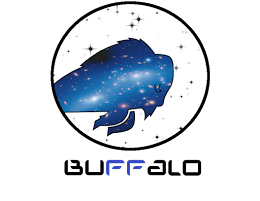BUFFALO Collaboration (Online) Meeting 2021
Online
BUFFALO is a Hubble Space Telescope Large Program to survey massive clusters of galaxies from the six well-studied Frontier Fields. The primary goal of the survey is to enhance our understanding of the formation and assembly of the most massive and most luminous galaxies in the universe, and how they grew in connection with their dark matter halos. This requires investigating the astrophysics of dark matter itself, as well as cluster gas and dynamics to constrain how and when these galaxies formed. BUFFALO will also provide targets for the upcoming James Webb Space Telescope. Our highly international team consists of nearly 100 astronomers expert in relevant aspects of theory, simulation, and observation.
The BUFFALO 2021 meeting will take place on July 12-13, with two plenary sessions and a breakout working group session each day. The meeting will be held remotely on Zoom (more details to come). There is no registration fee for this meeting.
The deadline for talk submission is July 2, with registration for people not giving talks open until July 11. Please indicate which sessions you are likely to be able to attend, and we will do our best to accommodate everyone when scheduling talks.
Organizing committee: Mathilde Jauzac, Charles Steinhardt, Ana Acebron, Catherine Cerny, David Lagattuta, Anna Niemiec, Guillaume Mahler, Vadim Rusakov

